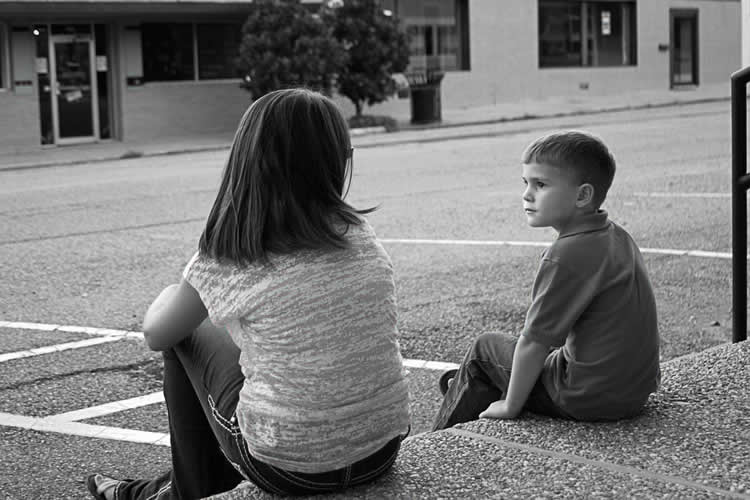Summary: A new study reports children are likely to learn how not to behave like their more disruptive siblings.
Source: AFTAU.
Siblings are more likely to learn how not to behave, say Tel Aviv University researchers.
A new Tel Aviv University study published in Child Development finds that the disruptive behavior of an individual child does not encourage similar behavior in their brothers and sisters.
On the contrary, Dr. Ella Daniel of TAU’s Jaime and Joan Constantiner School of Education finds that siblings, predominantly older siblings, of disruptive children tend to exhibit less disorderly behavior over time. The research, conducted in collaboration with Dr. Jennifer Jenkins and colleagues at the University of Toronto and funded by the Canadian Institute for Health Research, examines the role of sibling training on disruptive behavior during early childhood and concludes that disruptive behavior produces greater disparity — rather than resemblance — among siblings.
“The development of disruptive behavior in early childhood is extremely important, as disruptive behavior starts early in life and behavioral patterns may become stable and resistant to influence later on,” Dr. Daniel says. “We found that in early childhood, children do not learn from each other how to be disruptive, violent or disobedient.
“In fact, they are more likely to learn what not to do, or how not to behave. The older siblings of young children who are disruptive tend to become less disruptive themselves over time, creating a polarizing effect on their behaviors.”
Focusing on younger children
Existing research on disruptive behavior is largely focused on adolescents. The new study harnessed data assessing the rate of disruptions as witnessed by both parents to track 916 toddlers and their preschool- and school-aged siblings in some 600 families in and around Toronto.
The families examined had given birth to an infant between 2006 and 2008, and had at least one other child (younger than four years of age) at home. The researchers conducted observations and interviews with the family, including all the siblings in the family, every 18 months.

The scientists collected information when the youngest child in the family was 18, 36 and 56 months old. On these three occasions, both parents reported the disruptive behaviors of each of their children. Using advanced statistical models, the researchers were able to identify the role of siblings in the development of each child’s disruptive behavior over time, taking into account heredity, parenting, social environment and shared history.
“The study teaches us that we have little to worry about one sibling being ‘a bad influence’ on their brothers or sisters,” says Dr. Daniel. “Instead, we should be more worried of pigeon holing: that one child will be labeled as a ‘black sheep,’ and that all children in the family will develop based on pre-assigned roles. We should let each child develop his or her individuality, which naturally changes over time.”
The researchers are currently examining the role of siblings in the development of childhood depression
Source: George Hunka – AFTAU
Image Source: NeuroscienceNews.com image is in the public domain.
Original Research: Abstract for “An Examination of the Sibling Training Hypothesis for Disruptive Behavior in Early Childhood” by Ella Daniel, André Plamondon, andJennifer M. Jenkins in Child Development. Published online February 13 2017 doi:10.1111/cdev.12754
[cbtabs][cbtab title=”MLA”]AFTAU “Disruptive Children Do Not Inspire Similar Behavior in Siblings.” NeuroscienceNews. NeuroscienceNews, 6 March 2017.
<https://neurosciencenews.com/disruptive-children-sibling-behavior-6202/>.[/cbtab][cbtab title=”APA”]AFTAU (2017, March 6). Disruptive Children Do Not Inspire Similar Behavior in Siblings. NeuroscienceNew. Retrieved March 6, 2017 from https://neurosciencenews.com/disruptive-children-sibling-behavior-6202/[/cbtab][cbtab title=”Chicago”]AFTAU “Disruptive Children Do Not Inspire Similar Behavior in Siblings.” https://neurosciencenews.com/disruptive-children-sibling-behavior-6202/ (accessed March 6, 2017).[/cbtab][/cbtabs]
Abstract
An Examination of the Sibling Training Hypothesis for Disruptive Behavior in Early Childhood
Sibling training for disruptive behavior (one sibling teaching another disruptive behavior) is examined during early childhood. We used a conservative, recently developed, statistical model to identify sibling training. Sibling training was operationalized as the cross-lagged association between earlier child behavior and later sibling behavior, and differentiated from other reasons that contribute to sibling similarity. A three-wave longitudinal study tracked 916 children (Mage = 3.46, SD = 2.23) in 397 families using multi-informant data. Evidence for sibling training was found. Earlier younger siblings’ disruptive behavior predicted later lower levels of older siblings’ disruptive behavior. Thus, the sibling training found in early childhood was producing greater dissimilarity, rather than similarity, on disruptive behavior.
“An Examination of the Sibling Training Hypothesis for Disruptive Behavior in Early Childhood” by Ella Daniel, André Plamondon, andJennifer M. Jenkins in Child Development. Published online February 13 2017 doi:10.1111/cdev.12754






